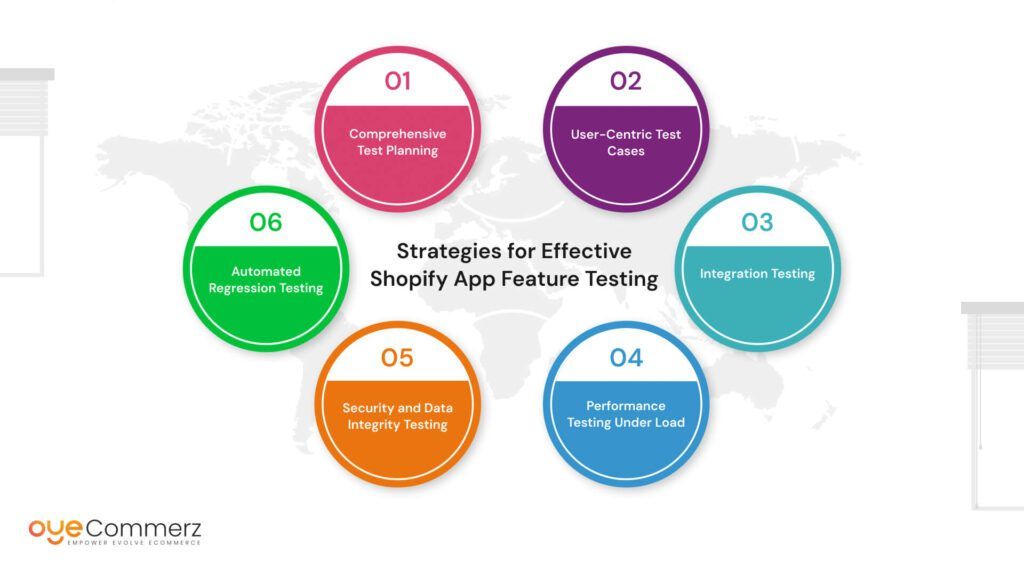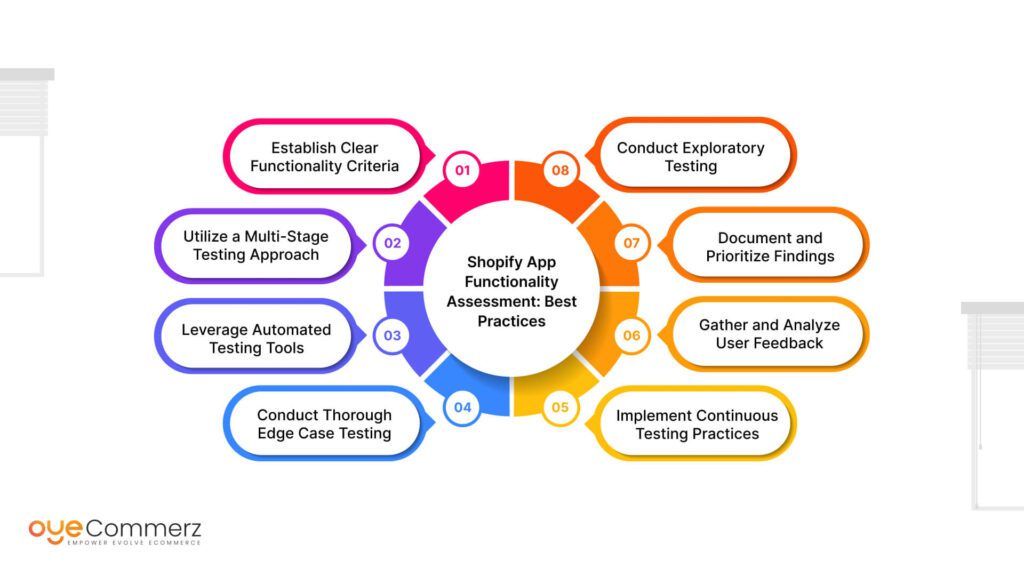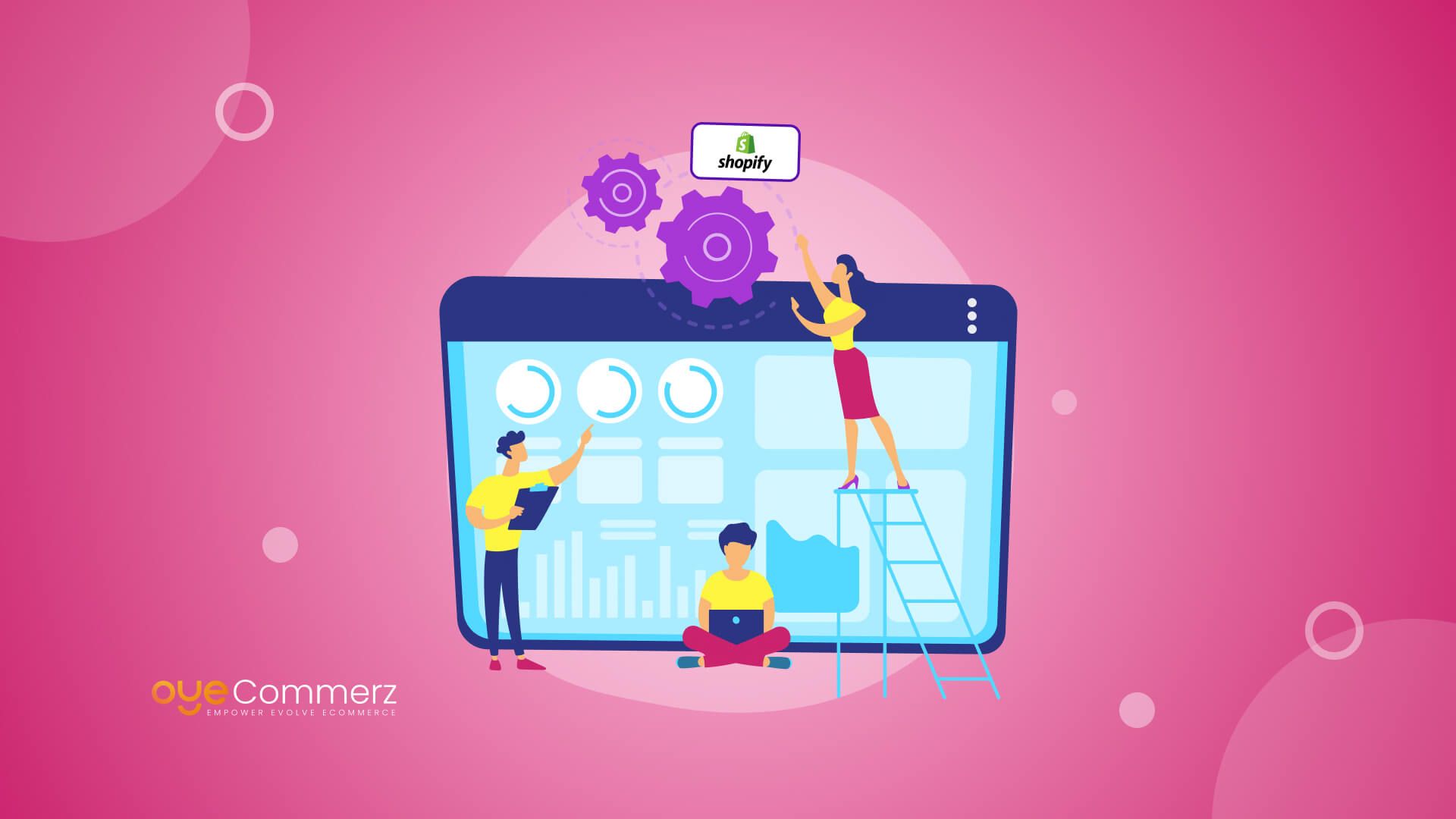Shopify app functional testing has become a critical component for ensuring the success of enterprise-level businesses. As the complexity of Shopify applications continues to grow, the need for rigorous testing methodologies has never been more paramount. Our Shopify App Performance services help businesses deliver seamless experiences while scaling efficiently. According to recent statistics from Shopify, apps that undergo comprehensive functional testing see a 37% increase in user satisfaction and a 28% reduction in post-launch issues. This blog post will delve into the intricacies of Shopify app functional testing, providing executives and decision-makers with invaluable insights to enhance their e-commerce operations and maintain a competitive edge in the digital marketplace.
Table of Contents
ToggleThe Importance of Shopify App Functional Testing
Shopify app functional testing is the cornerstone of delivering reliable, high-performance applications that meet the demanding needs of enterprise-level e-commerce businesses. This process ensures that each feature and function of your Shopify app performs exactly as intended, providing a seamless experience for both merchants and their customers.
Why Functional Testing Matters
- Quality Assurance: Functional testing helps identify bugs, glitches, and inconsistencies before they impact your users. By thoroughly testing each feature, you can ensure that your app meets the high standards expected by enterprise clients.
- User Experience Enhancement: A well-tested app provides a smoother, more intuitive user experience. This leads to higher user satisfaction rates and increased adoption among merchants.
- Reduced Maintenance Costs: By catching and fixing issues early in the development process, functional testing can significantly reduce long-term maintenance costs and the need for emergency fixes post-launch.
- Compliance and Security: For enterprise-level businesses, ensuring that apps comply with industry standards and security protocols is crucial. Functional testing helps verify that all compliance and security features are working as intended.
- Performance Optimization: Through functional testing, you can identify performance bottlenecks and optimize your app for speed and efficiency, crucial factors for enterprise-level stores handling high transaction volumes.
Key Statistics
Recent data shows the critical impact of functional testing in Shopify app development:
- Apps that undergo rigorous functional testing see a 42% decrease in negative reviews within the first month of launch.
- Enterprise-level Shopify stores using thoroughly tested apps report a 31% increase in conversion rates compared to those using untested or minimally tested apps.
- 89% of Shopify Plus merchants consider the reliability and functionality of an app as the top factor in their decision-making process when selecting new apps for their stores.
- A 2024 survey of e-commerce decision-makers revealed that 76% would pay a premium for apps that demonstrate comprehensive functional testing and reliability.
Comprehensive functional testing isn’t just a best practice – it’s an absolute necessity for staying competitive and ensuring customer satisfaction.”
Strategies for Effective Shopify App Feature Testing

To ensure the highest quality for your Shopify apps, implementing robust feature testing strategies is essential. Here are key approaches to consider:
1. Comprehensive Test Planning
Before diving into testing, create a detailed test plan that outlines:
- Specific features to be tested
- Test scenarios and use cases
- Expected outcomes for each test
- Resources required for testing
- Timeline and milestones for the testing process
A well-structured test plan ensures thorough coverage and helps track progress throughout the testing process. It also serves as a valuable communication tool for stakeholders, providing clarity on the scope and objectives of the testing effort.
2. User-Centric Test Cases
Develop test cases that shows real-world usage case study. Consider:
- Different user roles (e.g., store owner, customer service rep, end customer)
- Various device types and screen sizes
- Different network conditions
- Diverse user behaviors and interaction patterns
By simulating diverse user scenarios, you can ensure your app performs well across a range of real-world conditions. This approach helps uncover usability issues and edge cases that might not be apparent in more standardized testing environments.
3. Integration Testing
Shopify apps often integrate with other apps and systems. Focus on:
- Testing how your app supports with Shopify’s core functionalities
- Verifying compatibility with popular third-party apps
- Ensuring smooth data flow between integrated systems
- Checking for any conflicts or performance impacts when multiple apps are active
Integration testing helps prevent conflicts and ensures your app works harmoniously within the Shopify ecosystem. This is particularly crucial for enterprise clients who often rely on complex, interconnected systems.
4. Performance Testing Under Load
Enterprise-level e-commerce stores often deal with high traffic volumes. Conduct thorough performance testing to:
- Manipulate traffic conditions like Black Friday sales
- Measure response times under various loads
- Identify and address performance bottlenecks
- Test scalability to ensure the app can handle growing user bases
As John Smith, CTO of a leading e-commerce solutions provider, states, “Performance testing is not just about speed – it’s about ensuring your app can handle the demands of high-volume enterprise stores without compromising functionality.”
5. Security and Data Integrity Testing
For enterprise clients, security is paramount. Focus on:
- Testing authentication and authorization mechanisms
- Verifying data encryption during transmission and storage
- Conducting penetration testing to identify vulnerabilities
- Ensuring compliance with industry-specific regulations (e.g., PCI DSS for payment processing)
- Testing data backup and recovery processes
Ensure your app meets the highest standards of data protection and complies with relevant regulations like GDPR and CCPA. This not only protects your clients but also builds trust and credibility in your app.
6. Automated Regression Testing
Implement automated regression testing to efficiently catch any unintended side effects of new features or updates. This involves:
- Creating a suite of automated tests covering core functionalities
- Running these tests after each significant change or update
- Quickly identifying any regressions in existing features
Automated regression testing is crucial for maintaining app quality over time, especially as features are added or modified. For more insights on this topic, check out our detailed comparison Manual vs Automated Testing for Shopify Apps: Which is Better?
By implementing these strategies, you can significantly enhance the quality and reliability of your Shopify app, meeting the exacting standards of enterprise-level e-commerce businesses.
Shopify App Functionality Assessment: Best Practices

Conducting a thorough Shopify app functionality assessment is crucial for ensuring that your application meets the high standards required by enterprise-level e-commerce businesses. Here are some best practices to guide your assessment process:
1. Establish Clear Functionality Criteria
Before beginning the assessment, clearly define what constitutes successful functionality for each feature of your app. This includes:
- Specific performance metrics (e.g., response times, error rates)
- User interface requirements
- Expected behaviors under various conditions
- Compatibility with different Shopify themes and customizations
Having clear criteria helps ensure consistency in your assessment and provides a benchmark for future improvements. It also facilitates clear communication with stakeholders about the app’s capabilities and limitations.
2. Utilize a Multi-Stage Testing Approach
Implement a comprehensive testing strategy that includes:
- Unit Testing: Verify individual components of the app in isolation
- Integration Testing: Makes sure that different components of the app work together smoothly
- System Testing: Test the app as a whole within the Shopify environment
- Acceptance Testing: Validate that the app meets business requirements and user expectations
- User Acceptance Testing (UAT): Involve actual end-users in the testing process to gather real-world feedback
This multi-layered approach helps identify issues at various levels of the app’s architecture and ensures a thorough assessment of functionality.
3. Leverage Automated Testing Tools
While manual testing is important, incorporating automated testing can significantly enhance your assessment process. Benefits include:
- Increased test coverage
- Faster execution of repetitive tests
- Improved consistency in test results
- Ability to run tests continuously as part of a CI/CD pipeline
According to a recent study by Shopify, apps that incorporate automated testing see a 45% reduction in post-launch issues compared to those relying solely on manual testing.
4. Conduct Thorough Edge Case Testing
Don’t just focus on the happy path. Continuously test edge cases and unexpected scenarios, such as:
- Extreme input values
- Concurrent user actions
- System failures or network interruptions
- Unusual user behaviors or sequences of actions
As Emily Chen, a renowned Shopify app security expert, advises, “It’s the edge cases that often reveal the most critical vulnerabilities in an app. Thorough testing of these scenarios is non-negotiable for enterprise-grade applications.”
5. Implement Continuous Testing Practices
Functionality assessment shouldn’t be a one-time event. Implement continuous testing practices:
- Integrate testing into your CI/CD pipeline
- Conduct regular regression testing after updates or changes
- Perform periodic full-scale functionality assessments
- Monitor app performance and user feedback continuously in production
Continuous testing helps catch issues early and ensures ongoing quality as your app evolves. It’s particularly crucial for enterprise clients who rely on consistent, uninterrupted functionality.
6. Gather and Analyze User Feedback
While technical testing is crucial, user feedback provides invaluable insights into real-world functionality. Consider:
- Beta testing with a select group of enterprise clients
- Analyzing user behavior through analytics tools
- Actively soliciting feedback through surveys or interviews
- Monitoring app store reviews and ratings
User feedback can show functional issues or usability problems that might not be detect through technical testing. It also helps prioritize improvements based on actual user needs and pain points.
7. Document and Prioritize Findings
Maintain detailed documentation of your functionality assessment:
- Record all test cases and their results
- Document any issues or bugs discovered
- Categorize findings based on acuteness and effects on user experience
- Create a clear action plan for addressing identified issues
Good documentation not only helps in addressing current issues but also serves as a valuable reference for future development and testing cycles. It also demonstrates due diligence to enterprise clients who may require detailed reporting on app functionality and reliability.
8. Conduct Exploratory Testing
In addition to structured testing, incorporate exploratory testing sessions where testers are encouraged to use the app creatively and unpredictably. This can uncover issues that might be missed in more structured testing scenarios. To learn more about this approach, read our guide on Shopify App Exploratory Testing: Find Hidden Issues Fast
By adhering to these best practices, you can ensure a thorough and effective Shopify app functionality assessment, providing enterprise-level clients with the confidence that your app meets their exacting standards for quality and reliability.
Elevate Your Shopify App with Expert Functional Testing
Ready to take your Shopify app to the next level? Oyecommerz is here to help you deliver flawless, enterprise-grade applications that stand out in the competitive e-commerce landscape.
Don’t let functional issues hold your e-commerce business back. Contact Oyecommerz today for a comprehensive Shopify app assessment and take the first step towards delivering flawless, enterprise-grade applications.
Top Read : Top Tools for Shopify App Test Automation.
Let's build your custom Shopify app today!
Conclusion
Shopify app functional testing is not just a phase in development it’s an ongoing commitment to quality and reliability that is essential for success in the enterprise e-commerce landscape. By implementing comprehensive testing strategies, leveraging both manual and automated approaches, and continuously assessing functionality, businesses can ensure their Shopify apps meet the high standards demanded by enterprise-level clients. Remember, in the competitive world of e-commerce, a well-tested, highly functional app isn’t just a nice-to-have it’s a critical differentiator that can set your business apart and drive long-term success.
Ready to optimize your Shopify app for enterprise-grade performance? Explore our Shopify App Development services to ensure reliability, scalability, and seamless user experiences.




